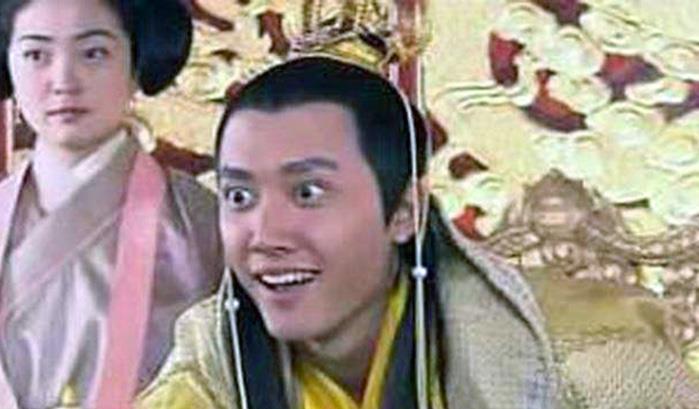In the feudal era, few people sang odes to Emperor Mingwu Zhu Houzhao. The feudal literati criticized Emperor Wuzong because he despised the etiquette and violated traditional ethics.
Emperor Mingwuzong used his position as emperor to realize the will to be "free"
We all know that Ming Wuzong was indeed an absurd monarch, but among the feudal emperors, which one was not the three palaces and six courts? Obviously, the critics are not specifically referring to this, and their core argument is to blame Ming Wuzong for stripping the emperor of the cloak of hypocrisy and unscrupulously exposing the "evil of human nature".

Ming Wuzong stills
Ming Wuzong was originally a naughty boy, but he became the Son of Heaven a night ago. At first, he did not adapt to this identity, nor did he change his long-standing personality. He was not at all interested in red tape, nor in the long-winded recitals, and he was even more upset by the nagging ministers around him.
In fact, Emperor Mingwuzong used his position as emperor to realize his "free" will. On the one hand, he abolished the internal officials in the dormitory and the study, and there was no such group of people to restrict his life and behavior, and he had much freedom of movement; on the other hand, he allocated a group of his own forces to compete with the officials of the imperial court.
Ming Wuzong often performed miscellaneous dramas in the palace, and the sound of orchestra and shouting was incessant; he also often sneaked into the streets and alleys to watch the wonders and admire the strange, sometimes pretending to be a merchant in the market, and even personally shouting and selling; he mixed with the women on the street, lingered, and long ago threw government affairs and state affairs out of the cloud of nine clouds.
At the beginning of Ming Wuzong's reign, he occasionally came to the court, and later simply lived in the "leopard room", allowing eunuchs and ministers to quarrel and fight above the court, and he seemed to be an outsider, and it seemed that no country or country had anything to do with him.
Judging from Ming Wuzong's behavior, in fact, he is actually a playful, unrestrained, and cheerful young man, whose words and deeds are full of rebellion against tradition and prohibitions. However, these are also manifestations of his superiority in the power struggle against the bureaucracy.
During the Zhengde years, the political situation and future were dark
As we all know, Emperor Mingwuzong's young men ascended to the throne, and a large number of old ministers gathered in the DPRK and China, and power struggles and conflicts were inevitable. In fact, no matter who wins the struggle, there is no essential difference. Because the eunuchs and warriors in power at that time were of low quality, they had no ability to govern the country at all.
At that time, there was a folk song in the capital: "The minister rushed to worship the internal officials, and the lieutenants in the factory tied the luan belt", which shows that the political situation and future at that time were dark, and almost all the eunuchs and warriors controlled the political lifeline in the Ming Dynasty.
The struggle for power and profit in the official arena has led to political turmoil and instability, and the people who have suffered the most are the ordinary people, who have been plundered to the extreme, and their daily lives are extremely poor.
All the dynasties and dynasties have had people of insight who were loyal to the king and worried about the country, and the Zhengde years were no exception. Unfortunately, Emperor Mingwuzong turned a deaf ear to the heartfelt words of these people. For example, on the eve of Emperor Mingwuzong's southern tour, some officials in the government and the public tried to dissuade him, but he did not understand the hardships of his courtiers at all, and exerted great coercion, and used his staff to whip them, resulting in the tragic death of fifteen people.
Why did someone "overturn the case" for the absurd Ming Wuzong?
In recent years, some new views have emerged, and some scholars believe that Ming Wuzong was an emperor who emancipated his personality and pursued equality. Why is there such a tone in the academic circles? Why would he "overturn the case" for the absurd Ming Wuzong?
According to the US-China Evening News, in a rural area in the southern United States, someone once found a "Ming Dynasty Holy Will". The American auction house concluded that this was the holy will written by Emperor Mingwu himself five hundred years ago.
Later, this holy will was auctioned by a Chinese in the United States at Christie's auction house for millions of dollars, and the content of this holy will subverted our understanding.
This decree consists of 313 words. It is recorded that Emperor Mingwu taught people to be generous to others, to put the people of the country first, to remain enterprising, and to make more contributions to the country and the people. Experts are confused after looking at it, is this still the absurd Ming Wu Sect? His image has been completely subverted, and we may have wronged this "dark lord".
In fact, let's think about it carefully - who wrote the history of the Ming Dynasty? Knowing the answer to this question, you can find out the truth of the matter.